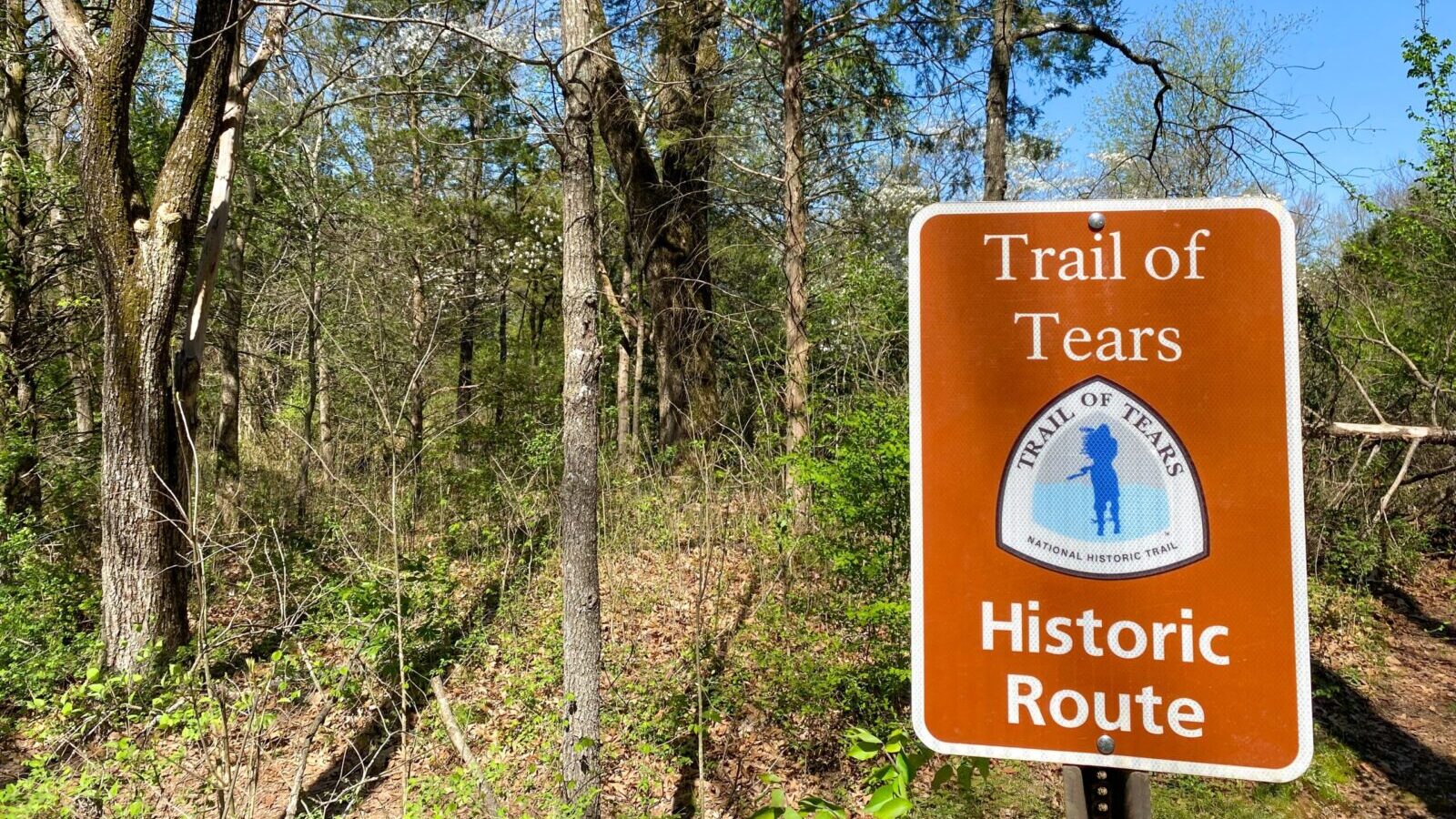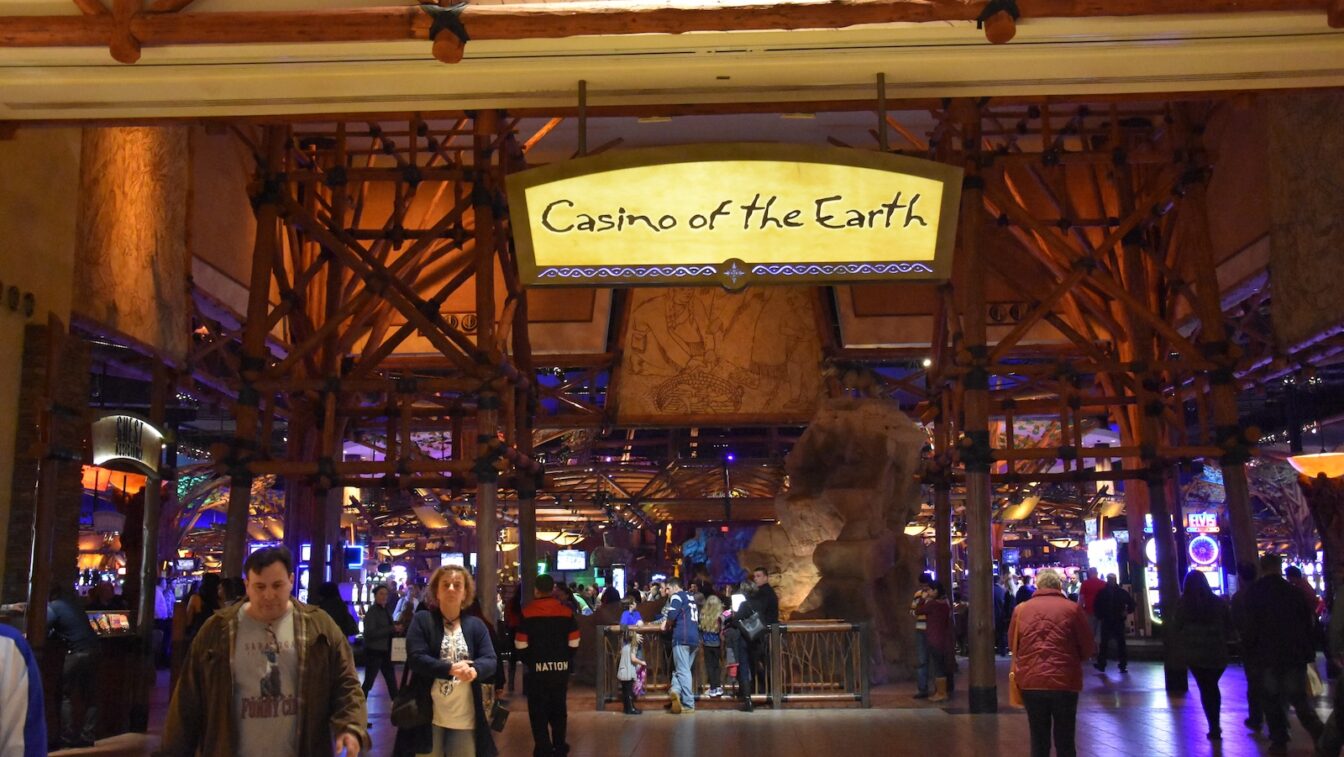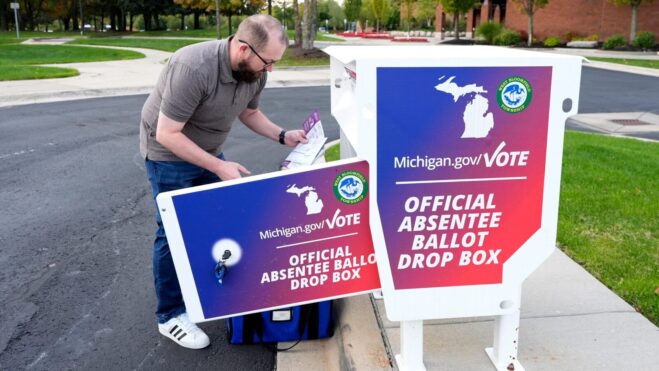Tribe Wants Alabama Casino Built On Its Burial Grounds To Be Torn Down
A fascinating legal battle is playing out between two tribes, each with gaming interests
3 min

Wind Creek Casino & Resort in Wetumpka, Alabama, about 30 minutes north of Montgomery, is a humongous facility.
It spans more than 500,000 square feet and features more than 2,000 electronic gaming machines, 283 hotel rooms, a spa, an oasis pool, a gym, a 1,200-seat entertainment center, and more.
It’s an all-encompassing gambling and entertainment complex owned by the Poarch Creek Band of Creek Indians.
It’s also built on a different tribe’s ancestral burial ground.
That tribe claims 57 of its ancestors’ bodies — and thousands of tribal artifacts — were illegally unearthed to build the casino resort.
And that tribe is suing to make the Poarch Creek Band tear down Wind Creek Wetumpka.
Hickory Ground site, Trail of Tears
This whole saga began back in 1980, when the Poarch Creek Band purchased the old Hickory Ground site — the final Muscogee capital before the tribe was forced off its land and onto the tragically infamous Trail of Tears in the mid-19th century — with federal grants funds.
The original lawsuit, put forth by the Muscogee Creek Nation, began in 2012. The Muscogee sued the Poarch Creek Band, the U.S. Department of the Interior, and Auburn University. They claimed the Poarch Creek Band violated federal law by desecrating the 34-acre Muscogee historical site to build Wind Creek Wetumpka, removing bodies and artifacts and sending many to Auburn.
In 2021, a lower court ruled the Poarch Creek Band was protected by sovereign immunity and dismissed the case.
The latest update came in late September, when the 11th Circuit Court of Appeals in Atlanta heard arguments on whether to overturn that 2021 ruling. A verdict hasn’t been returned yet, and it could take months.
But it is possible (perhaps not likely … but possible) the 11th Circuit’s ruling may force the demolition of Wind Creek Wetumpka — or it will at least force the Poarch Creek Band to file an appeal to prevent that from happening.
What the Muscogee lawsuit claims
The Muscogee believe the Poarch Creek Band violated the Native American Graves Protection and Repatriation Act (NAGPRA) by removing the bodies and artifacts while constructing Wind Creek Wetumpka, which was completed in December 2013.
NAGPRA is a federal law, so the Muscogee are arguing they should be able to sue the Poarch Creek Band for an ongoing violation of that federal law.
In their claims against the Department of the Interior, the Muscogee argue the federal government was wrong to put the Hickory Ground land into a trust for the Poarch Creek Band because, under the Indian Reorganization Act, the DOI can only put land into trust for tribes federally recognized by 1934 — and the Poarch Creek Band wasn’t federally recognized until 1984.
The Muscogee also want the Hickory Ground land to be “returned to the condition it was in prior to the construction of the casino resort,” according to the lawsuit. Translation: No casino.
“For over 20 years, people have been fighting,” Raelynn Butler, secretary of culture and humanities for the Muscogee Creek Nation, said after the appeals hearing, according to Georgia Public Broadcasting. “I just hope that the court system hears us and our ancestors, and our plea to help to hold those accountable for what happened.”
The Poarch Creek Band’s arguments
In its argument to the appeals court, the Poarch Creek Band said the Hickory Ground land was only entered into a 20-year protective agreement when they bought it. So, in 2000, the land was no longer off-limits for development.
The Poarch Creek Band also says the Muscogee’s request to return the land to the way it was before the casino — so, to tear down the casino — violates its property rights.
“We own the land,” Poarch Band Chairman and CEO Stephanie Bryan said, per Georgia Public Broadcasting. “And we control what happens on the land.”
The likeliest result?
It seems highly unlikely the 11th Circuit — which has three judges — will force Wind Creek Wetumpka to be torn down.
However, there are three prongs to the Muscogee lawsuit — a “shotgun plea,” the judges called it. The tribe singled out the Poarch Creek Band, the U.S. DOI, and Auburn in three different aspects of the lawsuit. That shotgun approach perhaps may have led the lower court judges to improperly analyze this case in 2021, U.S. Chief Circuit Judge William Pryor said at the hearing.
“I’m pretty sympathetic to many of your concerns here,” Pryor said, addressing the Muscogee representatives, according to Courthouse News Service. “It seems to me there is a fundamental problem with how the district court looked at this.”
That certainly sounds like one of the three judges is ready to pick apart that case dismissal in 2021, doesn’t it?
So, even if the appellate court doesn’t tell the Poarch Creek Band to demolish its $250 million casino that’s been around longer than a decade, there is perhaps a greater chance that it forces Auburn to return more ancestral bodies and artifacts to the Muscogee.
Under NAGPRA, a university must return human remains or burial items to current-day tribe members if that tribe can prove a connection to the relics.
“Auburn could return [the remains and artifacts] tomorrow,” Butler said, according to Georgia Public Broadcasting. “This would settle a lot of it.”
Both tribes’ gaming footprints
The Poarch Creek Band owns three Wind Creek Casinos across Alabama — in Wetumpka, Atmore, and Montgomery. It is also building a Wind Creek Casino in Chicago, and it owns a handful of other casinos, including properties in Pennsylvania, Miami, Aruba, and Curacao.
The Muscogee Creek Nation owns nine gaming locations across Oklahoma, where its people were forced to relocate to as a result of the Trail of Tears.





